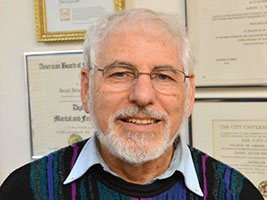Improv for Therapists
Clinical Training in Rehearsals for Growth
Virtual Online Workshop Series for Fall 2024*
Currently, we are offering trainings on SPECIALIZED TOPICS (see below)
*FALL WORKSHOP DATES TO BE ANNOUNCED IN AUGUST*
CLICK HERE TO REGISTER
Instructor: Daniel J. Wiener, Ph.D., RDT-BCT
Assisting Instructor: Margo Escott, LICSW
Assisting Instructor: Mo Sand, LMFT
CLICK HERE TO REGISTER
- Training in RfG’s Improvisational Methods prepares therapists for their practical application.
- RfG training via ZOOM demonstrates how these techniques are applied in our teletherapy sessions.
- Come engage in enacting these playful techniques, preparing you to employ them in either virtual or face-to-face therapy!
- In this module series, each highly experiential training will focus on one or two case examples centering on the use of particular, well-tested RfG Games/techniques, and will include students’ practice in directing RfG enactments and post-enactment processing appropriate to their Level of prior training.
- Though the emphasis will vary across modules, all these experiential training sessions are designed to increase both understanding and proficiency in the use of RfG Games and exercises for students at all Levels
of prior experience. - Trainees will both be able to practice these Games and learn how they may be adapted to their own cases.
Participants Receive:
3 CE hrs per module for recredentialling as RDTs from NADTA;
3 hrs per module of Direct Instruction in the RfG Certified Practitioner program (see Certificate Program)
Presenter
 Daniel J. Wiener, Ph.D., RDT/BCT is licensed psychologist who taught Marriage and Family Therapy for 23 years as a Professor at Central CT State U. Founded in 1984 his approach, Rehearsals for Growth, uses improvisational theatre games to work with relationships. Dan has presented over 260 professional workshops in 10 countries, training over 1200 therapists and is an Author/Editor of 5 books (starting with Rehearsals for Growth: Improvisation for Psychotherapists in 1994), as well as 50 published chapters and articles.
Daniel J. Wiener, Ph.D., RDT/BCT is licensed psychologist who taught Marriage and Family Therapy for 23 years as a Professor at Central CT State U. Founded in 1984 his approach, Rehearsals for Growth, uses improvisational theatre games to work with relationships. Dan has presented over 260 professional workshops in 10 countries, training over 1200 therapists and is an Author/Editor of 5 books (starting with Rehearsals for Growth: Improvisation for Psychotherapists in 1994), as well as 50 published chapters and articles.
